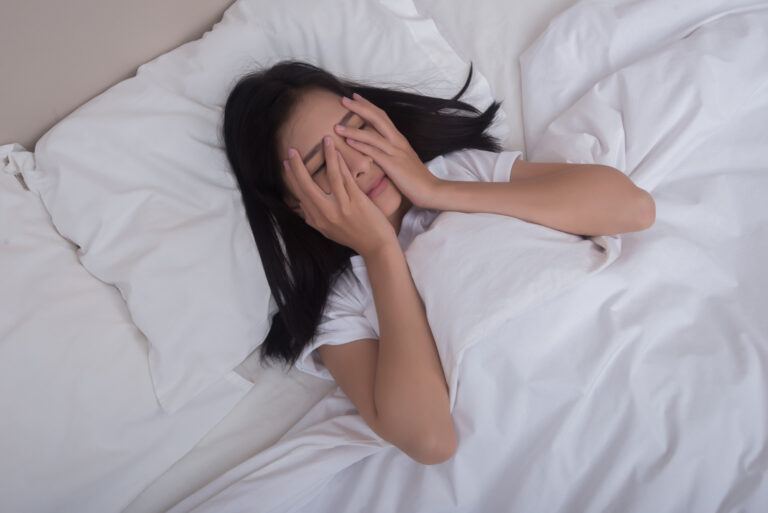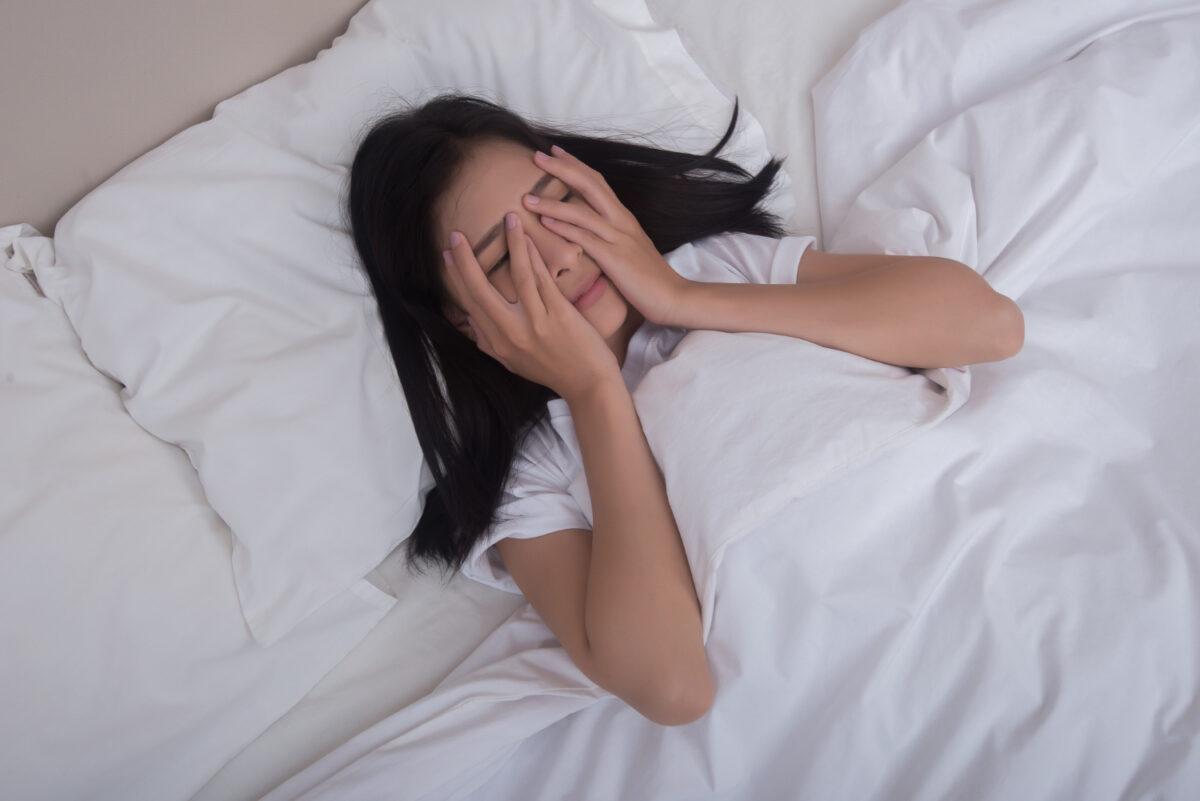/ บทความ / Facing Insomnia because of stress?

During the outbreak of COVID-19 while working from home, many people are addicted to working irregular hours or working late at night, coupled with unfavorable work environments, no concentration at work which are causing stress until insomnia. These result in exhaustion during the day and decreased performance and creates an ever-increasing amount of stress. So the insomnia became more severe.
Why Do We Feel Stressed while Working from Home?
Some people may think that working from home should be comfortable as there is no need to leave the house to encounter traffic jams and pollution outside, without needing to worry about the chaos in the office and would be able to concentrate more on work
Indeed, working from home for extended periods of time can cause unconscious stress build-up. As some tasks require brainstorming together or need someone to give advice and talk to each other all the time, the work and rest time are overlapped until there is no real rest time resulting in the discomfort of working from home.
For all these reasons, working from home can be stressful. This stress is a major cause of insomnia, waking up in the middle of the night and not getting enough rest. By survey results in many countries around the world, it was found that the number of people with sleeping problems or insomnia has increased significantly during this COVID-19 period.
Causes of Insomnia
Our doctors at PrimoCare Medical explain the causes of insomnia that can happen from a number of factors as follows:
- An environment that is not suitable for sleeping such as a room that is too hot or too cold, there is a light or noise that disturbs sleep, etc.
- Certain foods and medications that induce a lack of sleep such as tea, coffee or caffeinated sodas that are stimulants that make you feel alert, nicotine. exposure from smoking including taking weight loss drugs, asthma medications and some nasal decongestants.
- Working with irregular sleep hours, such as shift work, work that requires constant shifts in work hours until the body is unable to adapt.
- Not exercising or exercising too little may make it difficult to fall asleep. Additionally, exercising too close to bedtime can cause your body to be so awake causing you insomnia.
- Physical symptoms such as hunger, pain, aches and pains, breathing problems, etc.
- Stress and anxiety is one of the main reasons why many people cannot sleep, especially working people who have to be stressed about work. Stress causes negative effects on both the body and the mind, such as headaches, stomach pains, frustration, discouragement, and depression. All of these symptoms further increase the severity of insomnia.
How to Cure Insomnia: De-Stress Before Going to Bed
Don’t let stress diminish the quality of your sleep. Let’s start changing behavior before bedtime to relieve stress and prepare the body and brain for sleep following these instructions:
- Plan work to suit the available time. Separate work and rest time. When it’s time to get off work, stop thinking about work and give yourself time to relax.
- Try to go to bed at a consistent time. Go to bed as soon as you feel sleepy for the body to remember sleep time. Adjust the biological clock in the body to balance.
- Organize the environment in the bedroom appropriately. Adjust the temperature so that it is neither too hot nor too cold. Turn off lights and noises.
- Eat foods that are high in magnesium, such as soybeans, peanuts, almonds, cashews. and whole grains to help relax the nervous system.
- Stretch your muscles, massage them, twist them, or soak them in warm water to relieve tension.
- Sip a warm drink that helps to relax, such as chamomile tea, etc.
- Create a sleep environment by using scents that help sleep, such as lavender, chamomile, etc., to help relieve stress. Makes you feel calm and free.
- Do some activities to help you feel relaxed such as reading books, listening to music, drawing, meditating, etc.
- Exercise regularly. But do not exercise for 4 hours before bedtime as it will make the body awake and make it harder to fall asleep.
- Avoid using your phone before bedtime. Place your phone away from your bed to prevent the light from your phone screen from disturbing your sleep.
- Avoid having heavy meals before going to bed. If you feel hungry, eat light meals such as bread, juice, milk, etc.
- Avoid drinking alcohol, tea, coffee and caffeinated soft drinks at least 6 hours before bedtime.
- Stop thinking about things that make you feel stressed, worried and sad. Try not to think about the future that is yet to come.
If the insomnia has not improved after following the advice mentioned above, you need to consult with a doctor to find the cause, receive treatment and plan a sleep plan as recommended by your doctor. If it leads to chronic insomnia, it can affect the health, quality of life, work performance, contributing risk factors for medical problems like cardiovascular disease, anxiety and diabetes etc.
Let the sound sleep be a time of true relaxation by starting to pay attention to healthy physical and mental health from today or get a further consultation with a doctor at PrimoCare Medical Clinic. Click here to visit us or make an appointment to enquire more about our services.
References:


